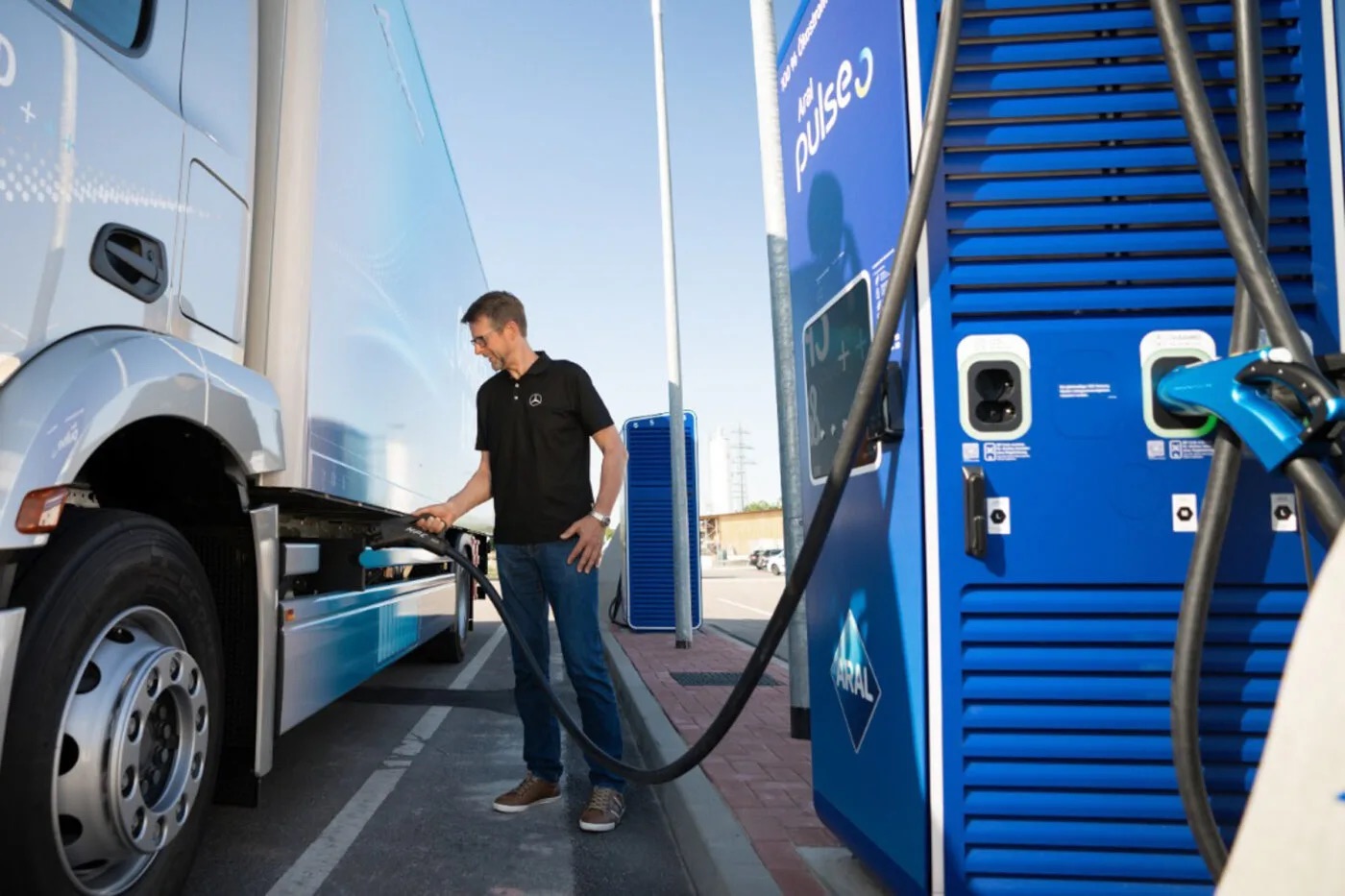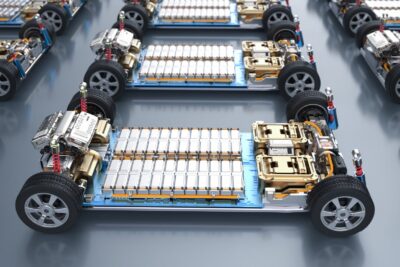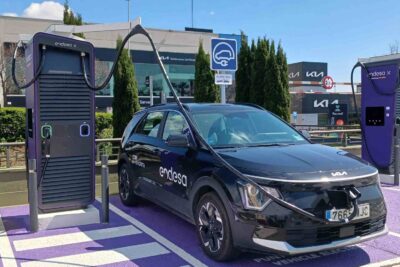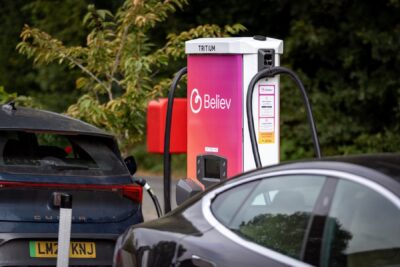La UE concede millones en financiación para infraestructuras de recarga y H2
A través de la AFIF, la UE promueve la transformación del transporte por carretera, marítimo, fluvial y aéreo en la RTE-T, e intenta ir mucho más allá del transporte por carretera, que hasta ahora ha recibido la mayor atención. Los 70 proyectos, que se extienden por 24 países de la UE, pretenden "desplegar infraestructuras de suministro de combustibles alternativos, como estaciones de recarga eléctrica, estaciones de repostaje de hidrógeno, suministro de electricidad e instalaciones de bunkering de amoníaco y metanol", según el comunicado de la Comisión.
En lo que respecta específicamente a los vehículos eléctricos y de pila de combustible, se apoyarán más de 1.000 nuevos puntos de recarga con una capacidad de 150 kW para turismos y vehículos comerciales ligeros, 2.000 puntos de recarga con una capacidad de 350 kW para vehículos comerciales pesados y 586 puntos de recarga con una capacidad de 1 MW. Además, se financiará la instalación de 38 estaciones de servicio de hidrógeno para coches, camiones y autobuses. La electrificación de los servicios de asistencia en tierra en 16 aeropuertos europeos también figura entre los proyectos que recibirán financiación.
En otros ámbitos, unos 24 puertos marítimos se beneficiarán "de la integración de tecnologías más ecológicas, como el suministro de energía en tierra (OPS), la electrificación de los servicios portuarios y las instalaciones de bunkering de amoníaco para abastecer de combustible a los buques marítimos". Sin embargo, no se mencionan proyectos relacionados con la aviación eléctrica.
También se consideraron un total de cinco proyectos alemanes, pero otros países también se beneficiarán en algunos casos. La empresa de servicios públicos de Múnich, Stadtwerke München, recibirá unos 3,8 millones de euros para la electrificación del transporte en autobús, sobre todo en lo que respecta a la ampliación de la infraestructura de recarga correspondiente, según un comunicado de la representación alemana ante la UE. La petrolera BP Europa (activa en el negocio de la recarga en Alemania bajo la marca Aral Pulse) recibirá casi 7,4 millones de euros para ampliar la infraestructura de recarga para camiones en Alemania. Fraport AG es uno de los operadores aeroportuarios beneficiarios y tiene previsto utilizar más de 2,5 millones de euros para electrificar los servicios de asistencia en tierra del aeropuerto de Fráncfort. Uno de los puertos marítimos mencionados se encuentra en Hamburgo: en el Puerto de Hamburgo se van a construir dos sistemas de alimentación in situ para hasta cuatro portacontenedores con una financiación de más de 4,6 millones de euros. Por último, el operador alemán de estaciones de recarga E-ON Drive Infrastructure (EDRI) también recibirá 8,8 millones de euros de financiación, pero para la ampliación de la infraestructura de recarga de camiones en Polonia y Hungría. Hemos enlazado la lista completa de los 70 proyectos al final del artículo.
La lista detallada muestra que el proyecto de BP, que recibirá 7,4 millones de euros de financiación, prevé unas inversiones totales de más de 24,6 millones de euros. BP tiene previsto construir diez parques de recarga de camiones situados a no más de tres kilómetros de la red RTE-T. "En cada ubicación, el beneficiario tiene previsto desplegar 3 estaciones de carga de 1 MW, cada una conectada a dos puntos de recarga. Esta configuración permite la flexibilidad de suministrar la totalidad de 1MW a un solo camión u optimizar la distribución de energía a 2 camiones simultáneamente", reza el comunicado.
El proyecto de Fraport recibirá un total de 8,5 millones de euros (seis millones más que el importe de la subvención). Se instalarán alrededor de nueve sistemas de suministro eléctrico para aviones estacionados, 322 puntos de carga de corriente alterna para vehículos ligeros de asistencia en tierra en la plataforma y un sistema de almacenamiento de baterías de 10 MWh para apoyar la conexión a la red. La empresa municipal de servicios públicos de Múnich, Stadtwerke München, tiene previstas varias medidas individuales: Se han previsto seis puntos de recarga de 400 kW en el depósito Este, siete cargadores pantógrafo de 600 kW a lo largo de las rutas 192, 193 y 197, y la electrificación completa del depósito de Moosach con 26 cargadores de 150 kW y cuatro cargadores de 400 kW, en todos los casos incluyendo los costes de conexión a la red. El coste del proyecto global se estima en 12,72 millones de euros, lo que supone unos 8,9 millones más que el importe de la financiación disponible.
La mayor subvención individual, de 61,5 millones de euros, es para la empresa francesa Voltix, que también cuenta con la mayor inversión total, de más de 205 millones de euros. Volitx tiene previsto instalar un total de 288 MW de capacidad de carga para vehículos industriales pesados en 45 emplazamientos de varios países, entre ellos Francia, España, Países Bajos, Dinamarca, Suecia, Austria y Alemania.
"Actualmente apoyamos 70 proyectos con 600 millones de euros de financiación de la UE para acelerar el despliegue de infraestructuras de combustibles alternativos en toda Europa", afirma Apostolos Tzitzikostas, Comisario de Transportes de la UE. "Estas inversiones reforzarán nuestra competitividad y contribuirán a que la transición a la movilidad de emisiones cero sea más fácil y accesible para todos los ciudadanos".
Paloma Aba Garrote, Directora de la Agencia Ejecutiva de Clima, Infraestructuras y Medio Ambiente de la Comisión Europea, añadió: "Este importante apoyo de la UE a organizaciones públicas y privadas acelerará la transición del sector del transporte hacia un futuro sostenible. Con estos nuevos proyectos, ya son más de 2.500 millones de euros en subvenciones de la UE los que se han asignado a proyectos de combustibles alternativos a través de la AFIF desde 2021. Esto demuestra la ambición de la UE de convertir la movilidad de emisiones cero en una realidad cotidiana".
ec.europe.eu, ec.europe.eu (Listar como PDF)





0 Comentarios